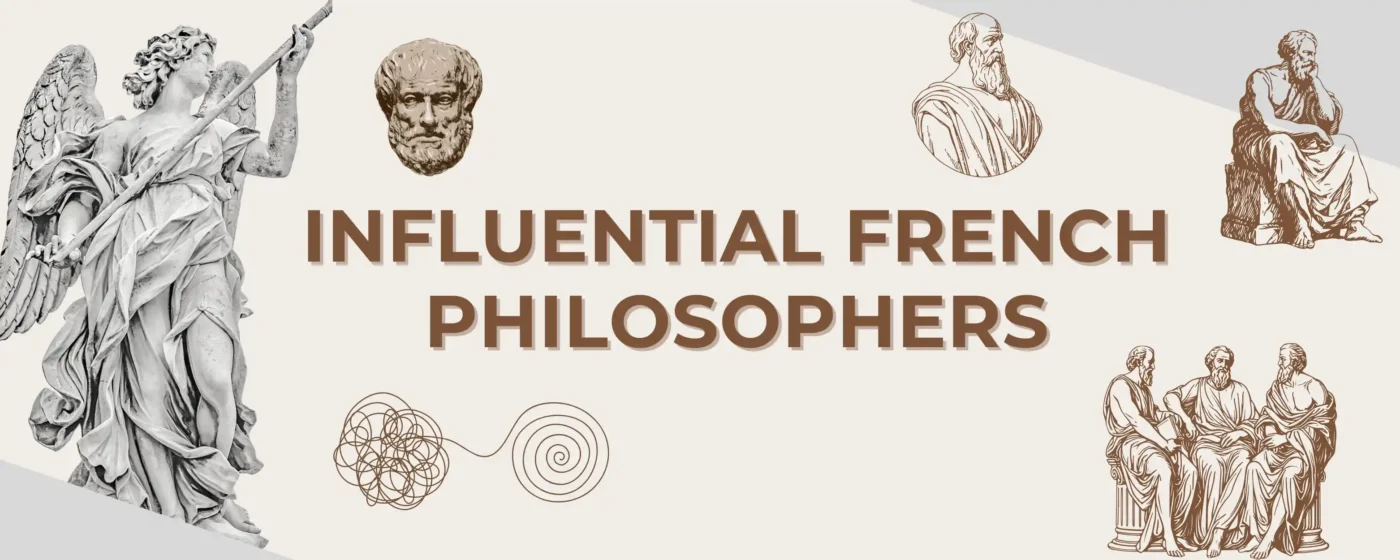Forget berets and croissants, France’s real gems are its philosophers! The French philosophers didn’t just ponder over one thing or two, they thought about everything! From revolutions to existentialism, they basically wrote the rulebook for modern thought. Come, let’s explore 10 of these famous French philosophers one by one.
Key Takeaways
- French philosophy has a rich tradition with thinkers such as Descartes, Sartre, Foucault, etc.
- Learn the key concepts such as existentialism, rationalism, and structuralism, influencing Western thought deeply.
- Philosophers contributed to debates on ethics, politics, and human nature crucial in modern philosophy.
- Many French philosophers combined literature and philosophy to reach wider audiences and understand their ideas aids comprehension.
- The work of French philosophers remain relevant for contemporary discourse and academic study.
8 Famous French Philosophers Who Shaped History
René Descartes (1596 – 1650)
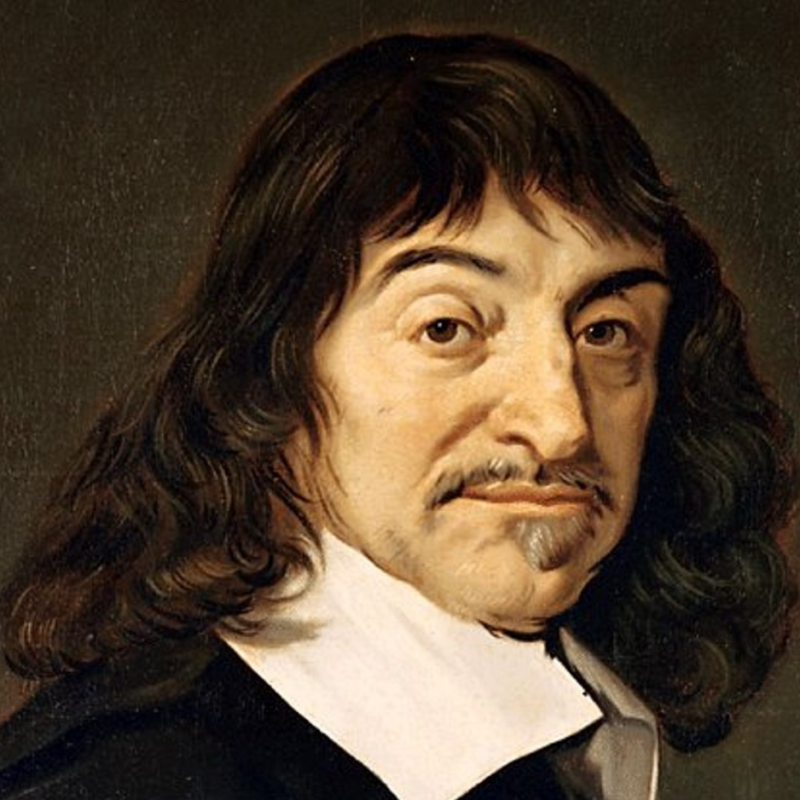
Major works: Meditations on First Philosophy, Discourse on the Method
René Descartes known as the “Father of Modern Philosophy”, Descartes bridged the gap between mathematics and philosophy. His famous philosophical statement “Cogito, ergo sum”, translating to “I think, therefore I am,” laid the foundation for self-awareness thought in the world. He introduced the concept of Cartesian dualism, separating mind and matter. In his metaphysics, Descartes explored the nature of substance, arguing that reality consists of two fundamental substances: mind (res cogitans) and body (res extensa).
Descartes’s method relied on deductive reasoning and the use of abstract concepts to reach clear and distinct truths. Beyond his philosophical accomplishments, Descartes made groundbreaking contributions to mathematics. He developed analytical geometry, by merging algebra with geometry.
Descartes’ fusion of logic and mathematical precision profoundly influenced scientific and philosophical thought for centuries. He played a pivotal role in the scientific revolution, helping to shift scientific thinking toward a rational, mathematical approach.
Voltaire (1694 – 1778)
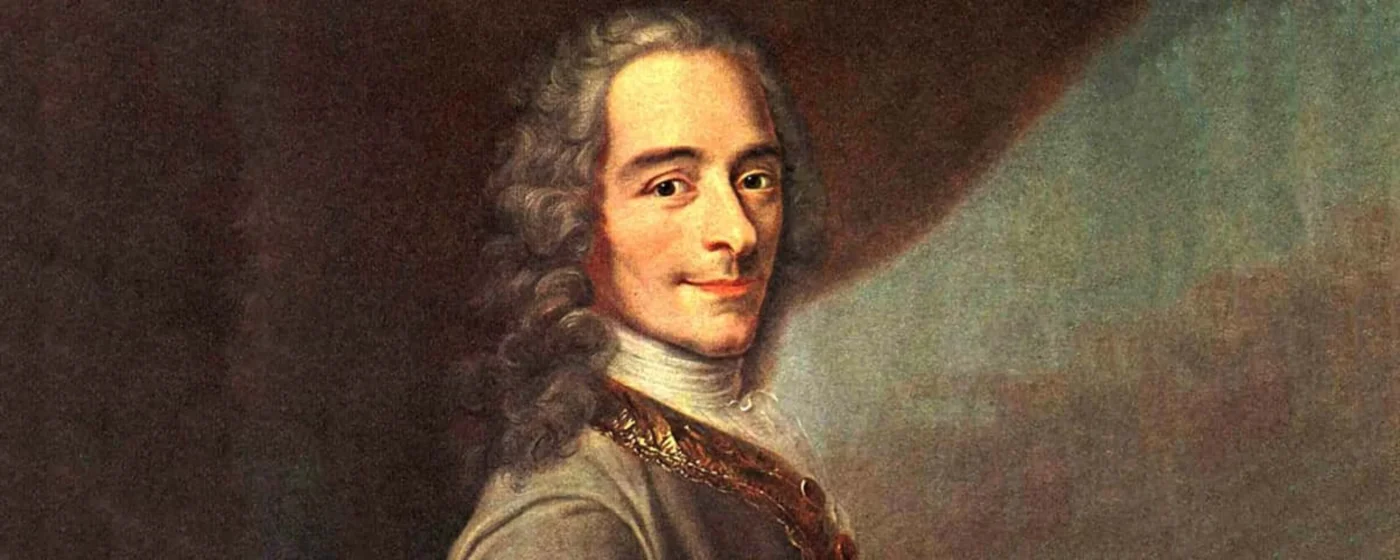
Major works: Candide, Letters on the English
Voltaire, one of the most prominent French philosophers, fought for free speech. He was a fierce advocate for fundamental freedoms, particularly freedom of speech. His satirical masterpiece, Candide, courageously critiqued the powerful and exposed the prevailing societal injustices.
He believed in reason and tolerance, highlighting how people should think for themselves and accept differences. He helped start the Enlightenment, a time when people began to question old ideas and fight for their rights. His clever writing made people think and helped change how they saw the world.
Through his provocative writing, Voltaire critically examined the world. His literary capabilities served as a catalyst for intellectual awakening, significantly influencing public opinion and reshaping societal perceptions for generations to come.
Enhance your cultural knowledge by exploring the lives of iconic figures in this list of the most famous French people.
Jean-Jacques Rousseau (1712 – 1778)
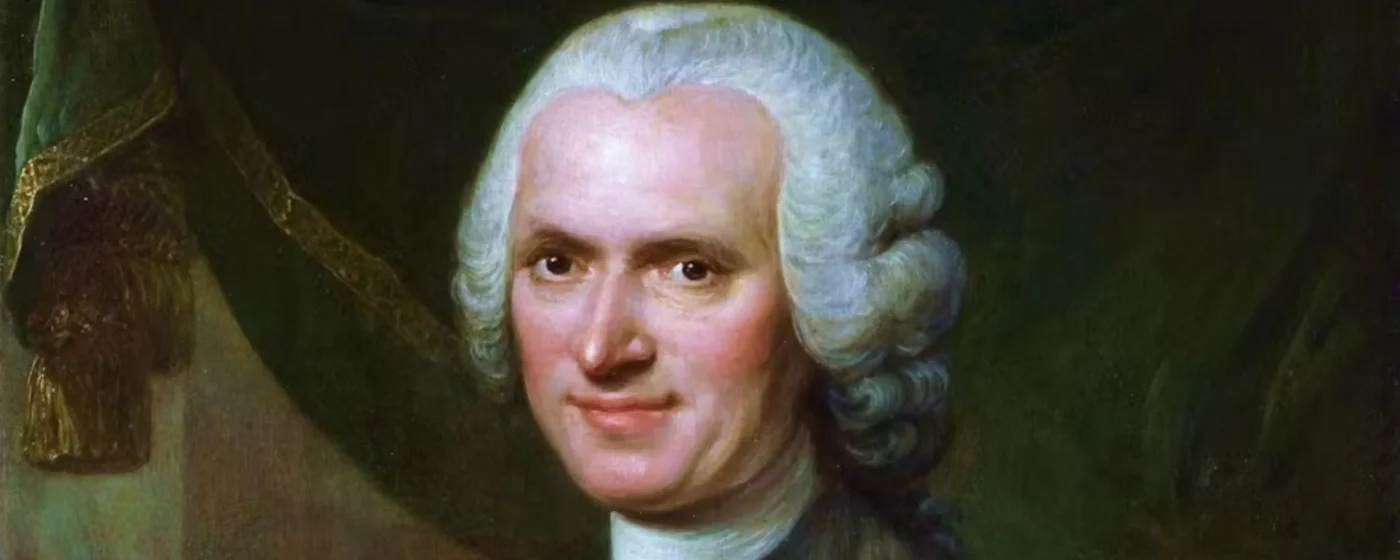
Major works: The Social Contract, Émile
Jean-Jacques Rousseau was a highly influential figure in both political and educational philosophy, and his contributions to political philosophy are especially significant. He believed that legitimate political power resides not with rulers or kings, but with the people themselves. His influential work, The Social Contract emphasized that a just government is based on the consent of the governed and the general will of the community.
Rousseau famously stated that “man is born free, and everywhere he is in chains,” highlighting his belief that humans are born free but society imposes constraints on their liberty. For Rousseau, true liberty is achieved when individuals participate in forming the general will and live under laws they have a hand in creating.
Rousseau revolutionized traditional thinking with his book Émile, or On Education. He advocated for “natural education”, a radical departure from the rote learning and strict discipline common at the time. Instead, Rousseau proposed that children should learn through direct experiences, exploration, and individual development. He also highlighted that these experiences must be guided by the child’s natural curiosity rather than rigid curriculum or forced instruction. He believed in allowing a child’s innate goodness and abilities to flourish organically.
Rousseau’s ideas started movements for democratic governance and child-centered education, leaving a lasting impact on both political and pedagogical theory.
Simone de Beauvoir (1908 – 1986)

Major works: The Second Sex, Mémoires d’une jeune fille rangée
Simone de Beauvoir was a feminist and existentialist who challenged society’s norms. Her groundbreaking book, “The Second Sex” challenged women’s oppression stating that “One is not born, but rather becomes, a woman”. This powerful idea meant that what society considers “womanly” is not about biology, but about how girls are raised and what roles they are expected to play.
Her relationship with Jean Paul Sartre also played a crucial role in her philosophical works exploring existential ethics. Her works profoundly emphasised individual freedom and responsibility, shaping modern feminism and serving as someone who paved the road for equality, recognizing that gender is just a social construct rather than a biological destiny. She believed that people have the freedom to choose who they are and how they live, and are responsible for these choices.
Beauvoir’s writings were incredibly important in shaping modern feminism. By highlighting that gender roles are learned, not natural, she paved the way for discussions about equality and challenged the traditional view that biology dictates a woman’s destiny. Her work continues to inspire efforts to achieve true liberation and equal rights for all.
Albert Camus (1913 – 1960)
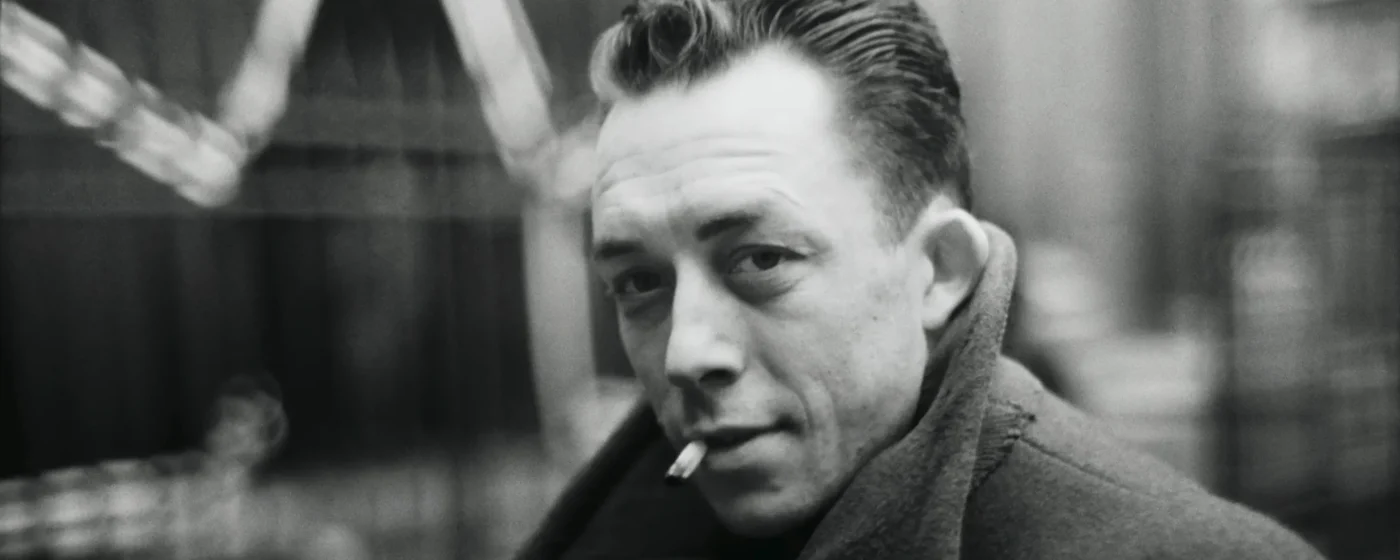
Major works: The Myth of Sisyphus, The Stranger
Albert Camus, a master of the “absurd” school of thought, explored the conflict between humanity’s search for meaning and the universe’s indifference towards it. His stories often explored the tough parts of being alive, like how people can keep going and find strength even when life feels pointless. He showed that humans are amazing at surviving and enduring, even when facing a world that doesn’t seem to care.
In his famous book “The Myth of Sisyphus”, he argued for embracing this absurdity through rebellion, freedom, and passion. While in his work entitled “The Stranger”, he talked about a world devoid of intrinsic meaning. His works often wrestled with the intricacies of existence, talking about humanity’s ability to survive and endure in a world that lacks clear purpose.
His deep understanding of human existence and its conflicts are what led him to his Nobel Prize in Literature in 1957. His work continues to make us think about our place in the world and how we can find our own meaning.
Michel Foucault (1926 – 1984)
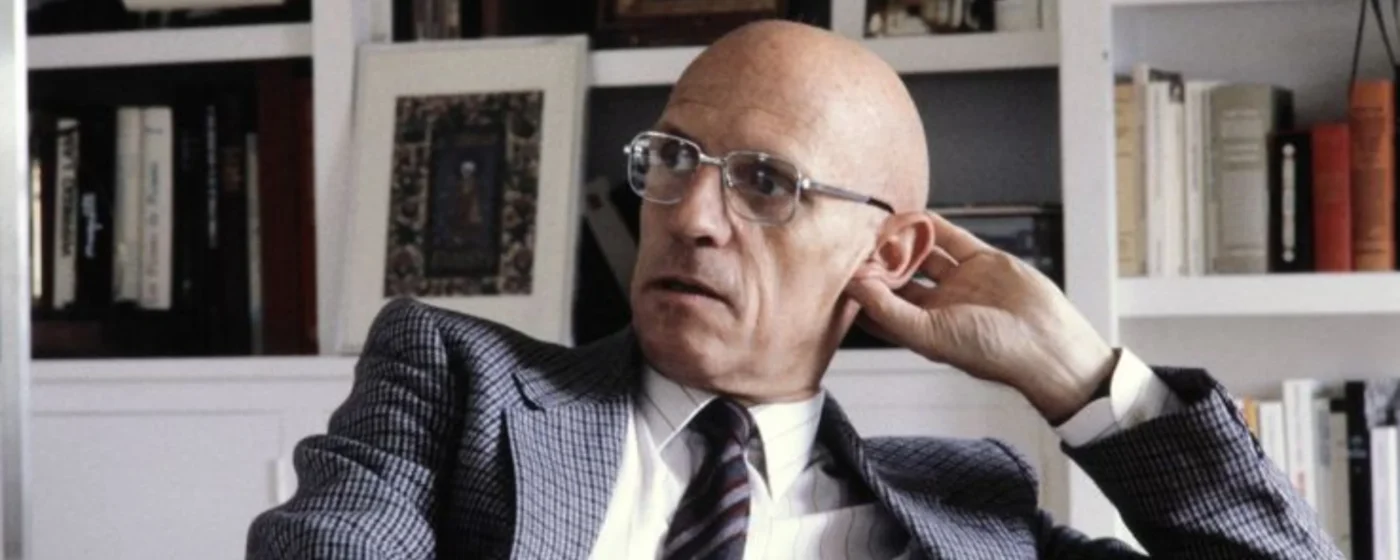
Major works: Discipline and Punish, The History of Sexuality
Michel Foucault showed that power isn’t just something that bosses or governments have and use against us. Instead, he argued that power is woven into the very fabric of our everyday lives. It exists in our schools, hospitals, how we talk, and even what we believe to be true. It’s a much more subtle force than we usually think.
Foucault came up with ideas like “biopower” and “panopticism” to explain this. Biopower is about how society controls our bodies and lives on a large scale, like through public health rules or how populations are managed. Panopticism refers to how the idea of constant watching, even if it’s not actually happening, makes us control ourselves.
Foucault’s extensive research into institutions and power revealed how social structures and the ideas we have about knowledge quietly shape our behavior and how we live our lives. He also explored the role of memory in shaping collective consciousness, showing how societal truths are maintained over time. His theories highlight the assumptions underlying societal power structures, questioning what is taken for granted. Unlike Marxism, which focuses on class struggle and economic determinism, Foucault emphasized the role of discourse, power, and social institutions in shaping society.
Jean-Paul Sartre (1905 – 1980)
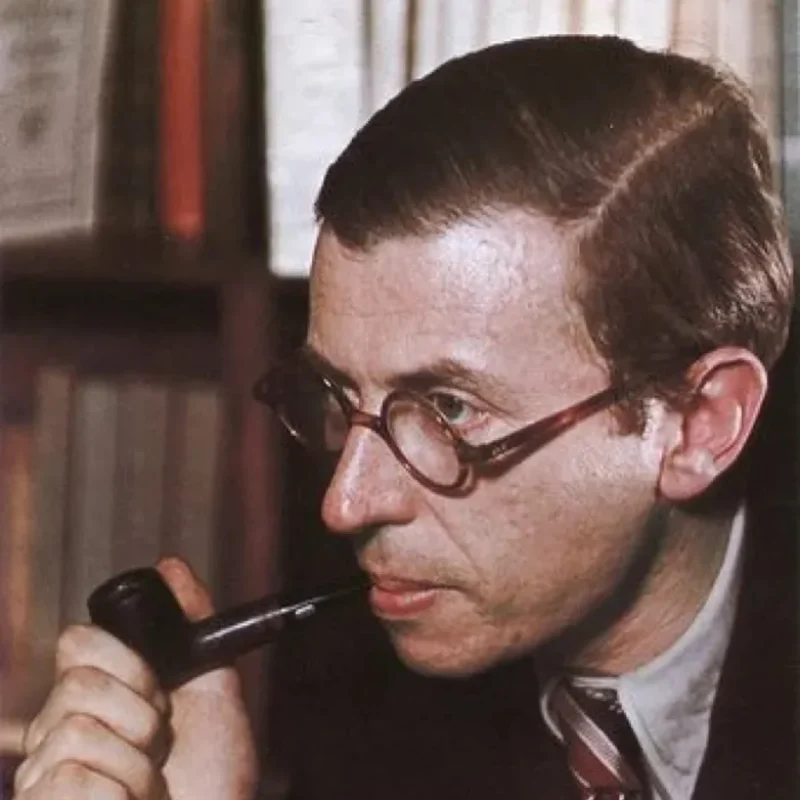
Major works: No Exit, Being and Nothingness
Jean-Paul Sartre was a major thinker in existentialism. He is often described as one half of a famous philosophical couple with Simone de Beauvoir, highlighting their influential partnership in French intellectual history. He believed that people define themselves through their actions. His key idea “existence precedes essence” means we are born without a fixed purpose or nature. Instead, we are free to choose who we become, and with that freedom comes great responsibility for our choices.
In his work entitled “Being and Nothingness”, Sartre explored the nature of human consciousness, looking at how we become aware of ourselves and the world around us. In his play “No Exit”, he powerfully showed the heavy consequences of our choices and how we are stuck with the outcomes. The play makes it clear that we can’t escape the responsibility for what we do.
Sartre’s focus on individual freedom and the heavy burden of responsibility truly made people stop and think. His ideas pushed people to deeply consider the meaning of life and what it means to be human, leading to a lot of soul-searching in society.
Blaise Pascal (1623 – 1662)
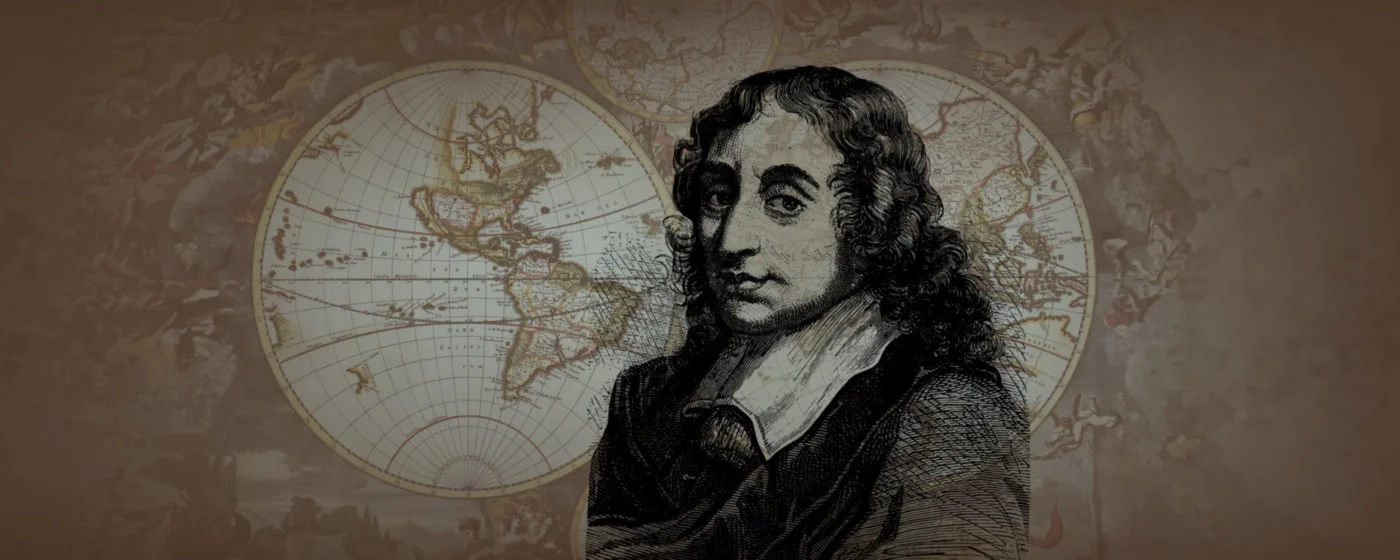
Major works: Pensées, Lettres provinciales
Blaise Pascal was a brilliant thinker who excelled in both mathematics and philosophy. In mathematics, he made important discoveries like the theory of probability, which helps us understand chance. He also discovered something called the “Pascal’s Triangle” which is a special pattern of numbers that shows up in many areas of math.
In his philosophical work “Pensées”, Pascal explored the difficult parts of being human. He looked at the constant tension between faith and reason, showing how people often struggle to balance what they believe with what they can logically understand.
Pascal also thought deeply about how fragile human life is and our constant search for meaning. He tried to understand why people feel lost or insignificant, and how they try to find purpose in their lives. His ideas continue to make us think about our place in the world and the big questions of existence.
Explore timeless literature with these famous French authors who have shaped global storytelling through their remarkable works and unique styles.
Did You Know?
- Descartes served in the armies of both Maurice of Nassau and Maximilian I of Bavaria.
- Voltaire was a huge coffee-lover! He used to drink an astonishing amount of coffee every day, sometimes up to 40 cups!
- Camus was diagnosed with tuberculosis at a young age, which significantly impacted his health throughout his life and may have contributed to his profound reflections on human mortality and the meaning of existence!
Forget translations, La Forêt French Class can help you delve deeper not only into these works, but also other nuances and intricacies of the French language.
Frequently Asked Questions
1. How did the French Revolution affect French philosophy?
Ans: The Revolution sparked intense debates about politics, society, and human nature. It influenced the rise of ideas like liberalism, and fostered a climate of intellectualism.
Some philosophers, such as Comte, viewed science and positivist philosophy as a remedy for the social disorder and chaos caused by the French Revolution.
2. What are some other influential French philosophers, apart from the big names?
Ans: Beyond the mainstream French names in philosophy, there are some other key names like Maine de Biran, Pierre Gassendi, and Nicolas Malebranche. Auguste Comte, often regarded as the first philosopher of modern science, founded the discipline of sociology and introduced the concept of altruism. Comte emphasized the importance of scientific conclusions in shaping his positive philosophy and developed a comprehensive social doctrine based on scientific principles.

